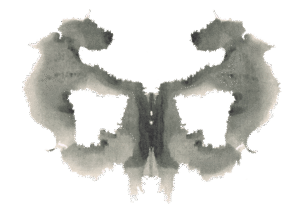Has Free Speech Become a Rorschach Test?
When meaning is no longer found in the words themselves, but in what others choose to see in them, free speech is a privilege decided by listeners, who have the power and authority to take offence.

Are the minorities in India fated to live on the goodwill and benevolence of the majority, constantly having to prove they belong? Is belonging ever truly granted? Or merely tolerated until the next offence is imagined?
Free speech today has become a Rorschach test, the psychological inkblot where people project their own fears, desires, and assumptions onto an ambiguous image. Words, like inkblots, are no longer interpreted for what they plainly say, but for what the reader believes they imply. Meaning no longer resides in the message, but in the anxieties and power dynamics of those interpreting it.
Professor Ali Khan Mahmudabad, associate professor and head of the Political Science department at Ashoka University, was arrested on May 18 after he faced FIRs over his social media post. He was not even called for an interrogation first. The complaints, under the new Bharatiya Nyaya Sanhita, accuse him of promoting hatred, threatening national integration, and even culpable homicide, public mischief, insulting modesty, and endangering national unity.
On May 22, a day after the Supreme Court granted him interim bail, Prof. Mahabudabad was released from jail. While granting bail, the bench warned of “dog whistling,” “double meanings,” and questioned the professor’s choice of words. An SIT was ordered.
Just weeks earlier, the same court had quashed the FIR against Congress MP Imran Pratapgarhi for a poem he had shared on social media. The bench praised artistic freedom, called the case “flimsy and fanciful,” and reminded us that dissent, whether through poetry, satire, or stand-up, is not a threat but a democratic necessity.
In the case of the poem, where ambiguity is essential to the art, the Court upheld the freedom it deserved. But in the case of a social media post, ambiguity appeared where none was intended. A fog not cast by the speaker, but conjured by those eager to take offense.
Here was a carefully worded critique by a political science professor from one of India’s most respected universities. It named no individuals, threatened no action, and posed no challenge to national security or public order. And yet, what followed was a frenzy of over-interpretation.

Renu Bhatia, Haryana Women’s Commission Chairperson, one of the complainants, struggled to explain what she found objectionable. She spoke in circles, changed the subject, and eventually admitted she hadn't fully understood the post. It was one of those interviews you wish had been satire. But it wasn’t. For over 30 minutes, she struggled to give a clear answer. And yet, it was enough to launch a criminal case, involve the police, and bring the matter all the way to the Supreme Court.
Prof. Mahmudabad was not creating ambiguity; he was calling attention to one. His post highlighted the symbolic complexity of the moment where a Muslim and a Hindu woman were chosen to lead the military's public communication during a charged conflict with Pakistan. He acknowledged the importance of that representation ("the optics is important", his exact words in the post in question), but asked whether it translated into real protections and equality on the ground. Especially for those facing bulldozings, mob lynchings, and other injustices.
In other words, he was naming the very ambiguity that defines much of our public life today. How we present ourselves versus how we behave. Symbols of inclusion standing alongside systemic exclusion.
This wasn't coded speech. It was a clear, political critique. And yet, instead of being read as that, his words were treated like a cryptograph loaded with double meaning, dog whistles, and even communal provocation. An SIT made up of IPS officers is now tasked with deciphering it.

And then there are other speeches. The ones that never see the inside of a courtroom. Like the one where “hum paanch, hamare pachees” mocks an entire community. “Pink revolution” stirs outrage over meat exports and hints at misplaced priorities. “Baby factories” reduces a post-riot relief camp to a slur. “Infiltrators” questions belonging itself. These aren’t slips of the tongue. They are quiet enough to pass as policy talk. Loud enough for the right ears to hear the message. Calculated, loaded, perfectly timed. Yet they pass without scrutiny, let alone consequences.
Meaning is no longer found in the words themselves, but in who speaks them. And how those in power choose to read them. What is said matters less than who is saying. And whether they are allowed to say it.
Free speech no longer feels like a universal right. It feels like a privilege. Extended to some, withheld from others.

